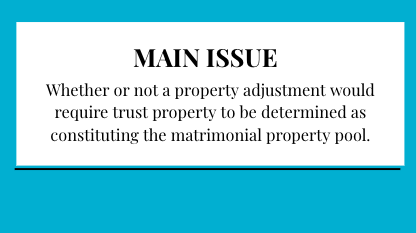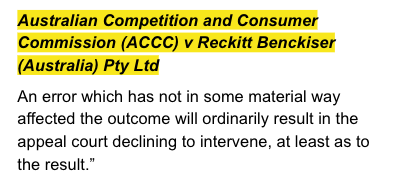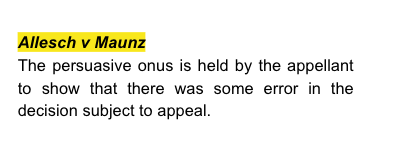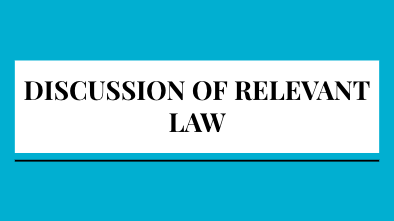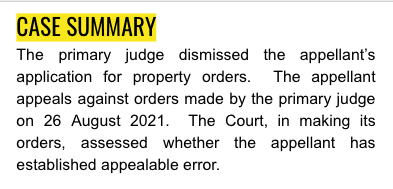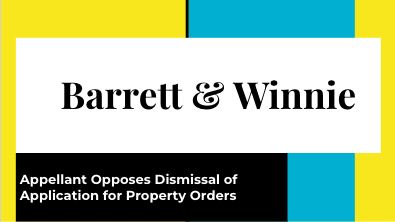- · 4790 friends
Ex.Husband seeks Property belonging to the Mother and her Children of a previous marriage be included in Property Pool

Barrett & Winnie [2022] FedCFamC1A 99 (1 July 2022)

The primary judge dismissed the appellant’s application for property orders. The appellant appeals against orders made by the primary judge on 26 August 2021. The Court, in making its orders, assessed whether the appellant has established appealable error.

Facts:
Mr Barrett (“the appellant”) was the husband of the first respondent from 1991 until the parties’ separation in 2005. The first respondent, Ms Winnie (“the mother”), was the wife of the appellant. Ms Winnie, as she is named in these proceedings, was, prior to her marriage to the appellant, married to Mr L with whom she had three children: Mr Winnie born in 1978 (“the second respondent”), Ms C Winnie born in 1980 (“the fourth respondent”) and Mr O born in 1984. Subsequent to her divorce from the appellant, the first respondent married Mr K.
The third respondent, is a company, for the purpose of proceedings called "B Pty Ltd" (“the third respondent”) which is the trustee company for the Winnie Family Trust. The children of the first marriage, Mr Winnie 1978 and Miss C 1980 are directors of the Company B. Ms Winnie and her son, Mr Winnie 1978 are the only shareholders of Company B, holding one share each beneficially. The Winnie Family Trust was established by a deed dated 21 September 1998.
Another company E Pty Ltd (now deregistered) but prior to being deregistered, was the corporate trustee of the P Family Trust, having replaced the mother as trustee by deed dated 8 January 1996. The parties to the marriage lived together for a period of 15 or 16 years. However, relevant to the assessment of contributions, the primary judge found that the appellant, by his own account, initially spent significant periods of time working overseas in South East Asia and the Pacific in the early stages of cohabitation and that, in the final stages of that cohabitation, the appellant was working in Sydney.
The parties to the marriage have one child together, Ms I, born in 1995. The parties to the marriage separated on a final basis in 2005, at which time Ms I was 10 years of age. Subsequent to the separation and extending for a period of approximately two years, Ms I lived with the mother and occasionally stayed with the appellant for short periods. Also relevant to the assessment of contributions are the unchallenged findings by the primary judge that, from about the time that Ms I was 12 years old, the mother undertook the sole parenting role in respect to Ms I.
Ms Winnie married Mr K in 2007, shortly after the parties’ divorce was finalised. Ms Winnie now goes by the name of Mrs K and does not have any children together with Mr K. Mrs K seeks party/party costs up to and including the hearing of the appeal in the amount of $23,580.51. Those costs are approximately half of the costs incurred by Mr Barrett at $46,940.10. The parties to the proceedings have, at various times, acquired and sold property. Where Company E Pty Ltd and Company B and D Company have acquired property, they have done so as corporate trustees of the relevant trusts to which reference has been made. The primary judge made orders for there to be a further distribution of property to the appellant over and above the property that had already been transferred to him by Mrs K in April 2007.
Mrs K’s share of that property had been transferred by her to Mr Barrett pursuant to what his Honour found to be an informal property settlement agreement between the parties to the marriage. Having determined at [254] of the reasons that the net property pool of the parties to the marriage, including superannuation, totalled $1,140,425, the primary judge noted that Mr Barrett had, as property in his sole name, a property in which he lived with his current wife at F Street, Suburb G in Queensland (“the F Street property”) valued at $725,000, in respect to which there was a mortgage payable of $427,532 (at [130]).
The primary judge further found that the net property in the hands of Mr Barrett, together with funds that he had applied for his benefit prior to the hearing, totalled $419,130. Additionally, the primary judge also found that Mr Barrett held superannuation in the amount of $311,283. This resulted in an outcome whereby the appellant held 95.61% of the identified property pool of the parties to the marriage.
The primary judge held that it would not be just and equitable to make any further adjustment of property in favour of Mr Barrett. The amount of property in the hands of Mr Barrett considerably exceeded the adjustment of property which Mr Barrett contended was appropriate. He contended that, having regard to the parties’ respective contributions, it was appropriate that he receive “between 20 and 25 per cent” of the property, albeit with that concession being made in the context of the appellant contending that the property pool contained trust property including, most relevantly, trust property of the Winnie Family Trust.

Issue:
Whether or not a property adjustment would require trust property to be determined as constituting the matrimonial property pool.

Applicable law:
Family Law Act 1975 (Cth) ss 117, 117(2A) - provides that each party to proceedings under this Act shall bear his or her own costs.



Analysis:
Mr Barrett conceded that, for the Winnie Family Trust assets to be considered as constituting part of the property pool available for distribution between the parties to the marriage, it was necessary for Mr Barrett to succeed in respect to his applications pursuant to s 106B of the Act, which provides for court intervention in Transactions designed to defeat claims.
It was conceded by Mr Barrett that in order to obtain a distribution over and above property which had already been transferred to the appellant, it would be necessary for Mr Barrett to establish: that the value of the Winnie Family Trust is at the higher of the potential values identified by the valuers; and/or that distributions made from the Winnie Family Trust would need to be ‘added back’ to the property pool.
In pressing for the Deed to be set aside, Mr Barrett implicitly acknowledged that neither Mrs K’s role as a director of Company B, the trustee company of the Winnie Family Trust, nor her entitlement as beneficiary justified a finding that the property of the trust, or a part of it, should be included in the matrimonial property pool of the parties to the marriage.
The primary judge in the present case appropriately had regard to the interests of other third parties and the significant contributions that they made to the trust property in determining whether it was appropriate to exercise his discretion to set aside the Deed.
Mr Barrett overlooks the fact that clause 7(5) of the Deed prohibits an appointor from appointing themselves as trustee. Mr Barrett nonetheless contends that, in the event of the Deed being set aside and Mrs K, as a result, becoming the appointor, she could appoint a person or entity as trustee who could, in turn, make a distribution or distributions from the Winnie Family Trust to her in circumstances where she is included in the class of beneficiaries of the trust.
That argument, with respect, ignores the fact that when Mrs K possessed that power of appointment, in the period prior to February 2008, she did not exercise it to displace Company B, where, as noted, she held office as a joint director, not a sole director. The solicitor advocate for the appellant was not unreasonably constrained in his ability to challenge evidence called by the respondents, including in his ability to cross-examine witnesses called in the respondents’ case.
Conclusion:
The primary judge correctly excluded the trust property from the matrimonial property pool and it is therefore unnecessary to consider issues relating to the valuation of that property, or whether trust property that has been distributed should be added back to the property pool. The appeal is dismissed. The appellant is to pay the costs of the respondents in the sum of $23,580.51 within 28 days.



